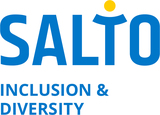Preparing a Disability Project
- Find this and more in the SALTO Inclusion for All booklet: No Barriers, No Borders
Starting from the young people's needs
It is clear that the young people are the central beneficiaries in mixed-ability projects. Even though you might like an organisational challenge as a youth worker, an international youth project is primarily built up around the young people and their wishes, aspirations, needs,... Including the young people from the start in the development of 'their' project, is vital to provide tailor-made youth work for your 'clients' - who are the reason of your existence as a youth worker.
Real Inclusion... or tokenism
If your aim is to set up a real 'inclusive' youth project, then the young people (with or without a disability) should be at the centre of the project and truly included in the development, implementation and follow-up of the project or activities - with of course some help and coaching from a youth worker here and there! One thing is sure - if you don't give space to the young people (whatever abilities they have) they will not be inclined to take any space nor responsibility.
- You can build up this participation bit by bit as described in Hart's "ladder of participation" in SALTO's Going International booklet (www.SALTO-YOUTH.net/GoingInternational/)
When going abroad it is important to think through your project from the young people's point of view and maybe a bit more from the point of view of your participants (or youth workers) with special needs. They might have some concerns that differ from those of people without a disability.
We could categorise young people's needs in several categories. These lists are intended to start you on a thought process, without necessarily covering all situations.
| Needs | |
|---|---|
| Practical & Technical Needs |
This category is related to the infrastructure and assistive equipment needed for the persons with a disability
Take the most demanding requirement as minimum standard e.g. the largest wheelchair, the slowest walker or eater, the person with the least vision,...). This way you are sure to leave nobody behind. See also the checklists in Creating activities for mixed-ability groups |
| Individual & Personal Needs |
This category is related to the individual persons with a disability in relation to their abilities.
The best way to find out the answers to these questions is to ask the participants, their parents, personal assistant or doctor. |
| Emotional & Social Needs |
This category is related to the individuals and their feelings, as well as those of the whole group
The emotional needs within the national group can already be dealt with a lot during the preparation |
| Health & Medical Needs |
These are all the needs related to the medical condition of all participants, and in particular to the people with a disability
|
| Safety & Legal Needs |
These are all the needs of the young people and there parents vis-à-vis the youth organisation and youth workers that are taking the young people abroad
|
- Find a series of practical checklists on working with specific disabilities which can help you think through an international mixed-ability youth activity.
- Persons using a wheelchair or with mobility impairment
- Blind people or partially sighted
- Deaf or Hard of Hearing young people
- People with a mental/cognitive/intellectual disability
- Other specific disabilities
^^ top ^^
 Inclusion: access to information!
Inclusion: access to information!
 pic group
pic group
Downloads
The following downloads are available:
- No Barriers No Borders - international mixed-ability projects - 2008 update
How to set up international projects with young people with and without a disability. With lots of tips & tricks about partnerships, funding, working with disability,... Based on SALTO TC Enable 2003
